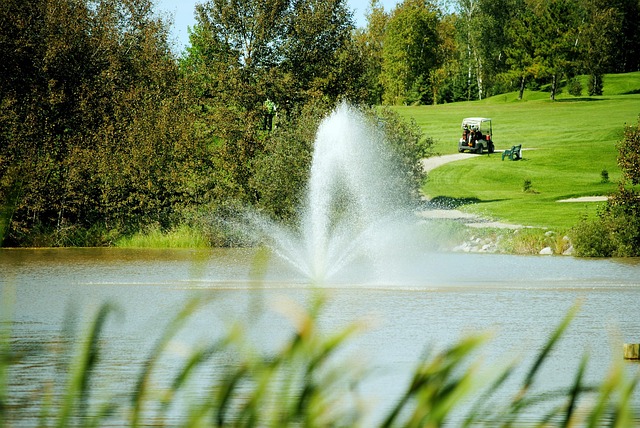The Oregon women's golf team faces unique challenges due to the sport's demanding nature, requiring coaches to design tailored training programs focusing on flexibility, strength, endurance, and precision. This holistic approach includes specialized drills for swing mechanics, course management, and mental resilience, preparing athletes for diverse terrain and weather conditions. Skill development extends beyond swing mechanics to strategic thinking and mental preparation, fostering resilience and confidence. Nutritional strategies, proper hydration, and recovery habits further enhance performance and well-being, enabling the Oregon women's golf team to excel both on and off the course.
In the competitive world of Oregon women’s golf, athletes strive for excellence on and off the course. This article delves into the comprehensive training methods essential for their success. From understanding the unique physical and mental demands to implementing tailored skill development strategies, each aspect contributes to unlocking their championship potential. Discover how physical conditioning, strength training, nutrition, and mental preparation combine to foster consistent excellence among Oregon’s top female golfers.
- Understanding the Unique Needs of Oregon Women's Golf Athletes
- Physical Conditioning and Strength Training for Optimal Performance
- Skill Development: Refining Technique and Strategy on the Course
- Mental Preparation: Unlocking the Mindset of a Champion Golfer
- Nutrition, Recovery, and Lifestyle Habits for Consistent Excellence
Understanding the Unique Needs of Oregon Women's Golf Athletes

The Oregon women’s golf team has unique requirements and challenges due to the sport’s inherent demands and the specific skills needed for competitive success. Training methods must cater to the physical and mental development of athletes, taking into account factors such as flexibility, strength, endurance, and precision. By understanding these needs, coaches can design tailored programs that optimize performance and minimize injury risk.
Incorporating specialized drills for swing mechanics, course management strategies, and mental resilience is essential. The diverse terrain and weather conditions in Oregon also play a role, necessitating training sessions that prepare athletes for varying playing environments. An holistic approach that integrates physical conditioning, technical skills, and psychological preparation will empower Oregon women’s golf athletes to excel both on and off the course.
Physical Conditioning and Strength Training for Optimal Performance

The physical conditioning and strength training regimens for the Oregon women’s golf team are designed to enhance performance on the course while minimizing injury risk. Golfers often face unique challenges, requiring a well-rounded approach to fitness that includes both aerobic endurance and explosive lower body power. Customized programs focus on developing core stability, flexible mobility, and dynamic balance—crucial elements for consistent swing mechanics.
Strength training incorporates exercises like squats, lunges, and core stabilization work to fortify muscles crucial for repetitive swing actions. Additionally, functional movement drills mimic on-course scenarios, improving athletes’ overall preparedness. This holistic approach ensures Oregon’s women golfers are not just physically ready but also perform at their best during competitive matches, setting them apart in the dynamic world of college golf.
Skill Development: Refining Technique and Strategy on the Course

The development of skills in Oregon women’s golf athletes goes beyond just hitting the ball. It involves a meticulous process of refining technique and strategy on the course. Coaches play a pivotal role in breaking down complex swings into manageable components, ensuring each athlete understands their unique strengths and weaknesses. Through consistent practice, players learn to execute shots with precision, adapting their techniques to different course conditions and layouts.
Strategic thinking is another key aspect of skill development. Oregon women’s golf athletes are trained to analyze the course, identify potential hazards, and plan their approach shots accordingly. This involves studying greens, understanding pin placements, and selecting the right club for each situation. By combining technical proficiency with strategic foresight, players can consistently lower their scores and perform at their best during tournaments.
Mental Preparation: Unlocking the Mindset of a Champion Golfer

Mental preparation is an often-overlooked yet crucial aspect of training for Oregon women’s golf athletes. Developing a champion mindset involves cultivating resilience, confidence, and focus. This entails understanding how to manage nerves during competition, staying present in each shot, and maintaining a positive outlook even after setbacks. Coaches can play a vital role by teaching mental skills training techniques such as visualization, goal setting, and mindfulness exercises.
These practices empower players to unlock their full potential on the course. By challenging negative self-talk and replacing it with affirmations, athletes learn to believe in their abilities. This mental fortitude translates directly into improved performance, enabling them to compete at higher levels, not just physically but also mentally, embodying the spirit of championship golf.
Nutrition, Recovery, and Lifestyle Habits for Consistent Excellence

The journey towards consistent excellence in Oregon women’s golf demands a holistic approach that goes beyond the practice range and tournament courses. Nutritional strategies play a pivotal role in fueling athletes’ performance and recovery. A balanced diet rich in lean proteins, complex carbohydrates, and healthy fats provides the necessary energy and nutrients for endurance throughout rigorous practices and competitions. Hydration is equally crucial; maintaining proper fluid intake aids in muscle function and overall physiological well-being.
Recovery habits are integral to the growth and resilience of Oregon women’s golf athletes. Adequate sleep allows the body to repair and rejuvenate, enhancing performance and reducing injury risk. Incorporating active recovery sessions, such as light yoga or low-impact cardio, promotes blood flow to muscles, expedites recovery, and prepares athletes for the next training session. Furthermore, incorporating mindfulness practices can help manage stress levels, ensuring mental clarity and focus both on and off the course.






